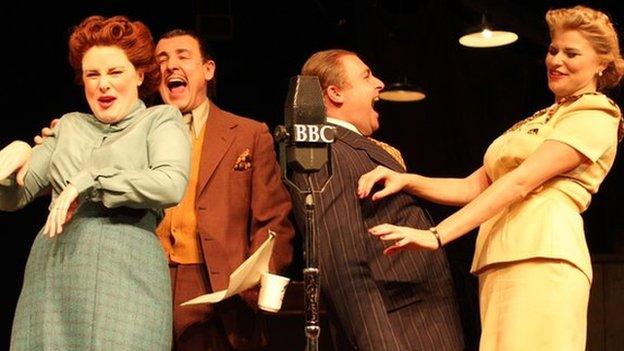Wartime evacuation: How the taxman fled to Llandudno in 1940
- Published
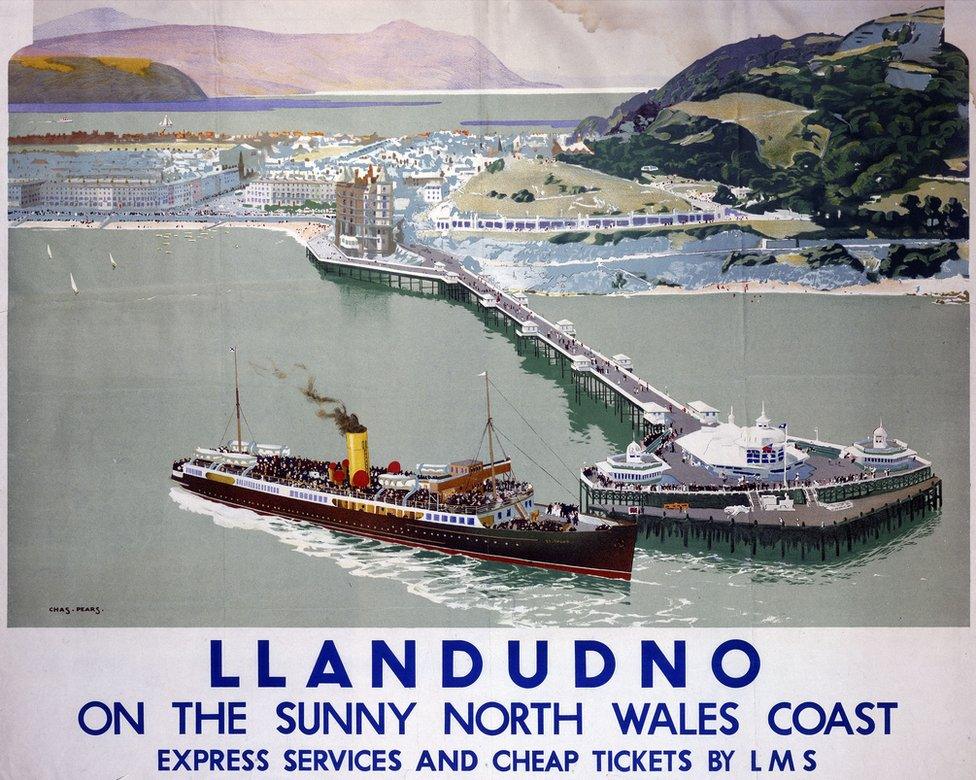
Llandudno was in its heyday a popular tourist destination
As Nazi bombs rained down on London during the 1940s Blitz, many British national treasures were evacuated to safer surroundings in north Wales.
They included gold reserves, National Gallery and the BBC Variety Department.
Few taxpayers may have regarded the Inland Revenue as a treasure, but in 1940 tax officials began relocating to Llandudno's Imperial Hotel.
Eighty years later, visitors can learn more about this unlikely chapter of the town's history on their smartphones.
Local historians have created a web page summarising the story which anyone can access on the spot by scanning QR codes displayed at the hotel.
Adrian Hughes, of Llandudno's Home Front Museum, said the taxman's evacuation to Llandudno in World War Two was an operation several years in the planning, to ensure the revenues kept flowing.
"By the mid 1930s it was clear that any future war against Germany would involve mass bombing of London and other major cities," he said.
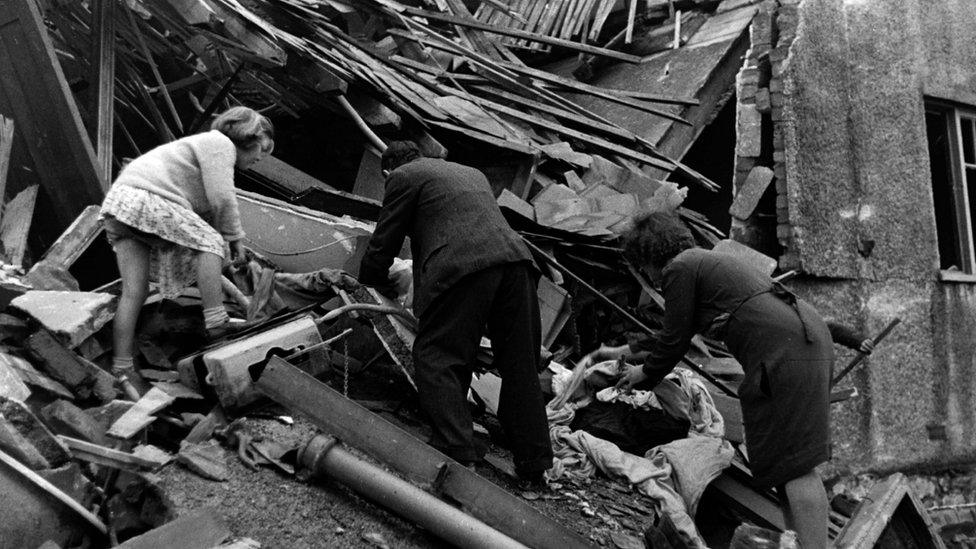
London was subjected to nightly bombings from German fighter planes during World War Two
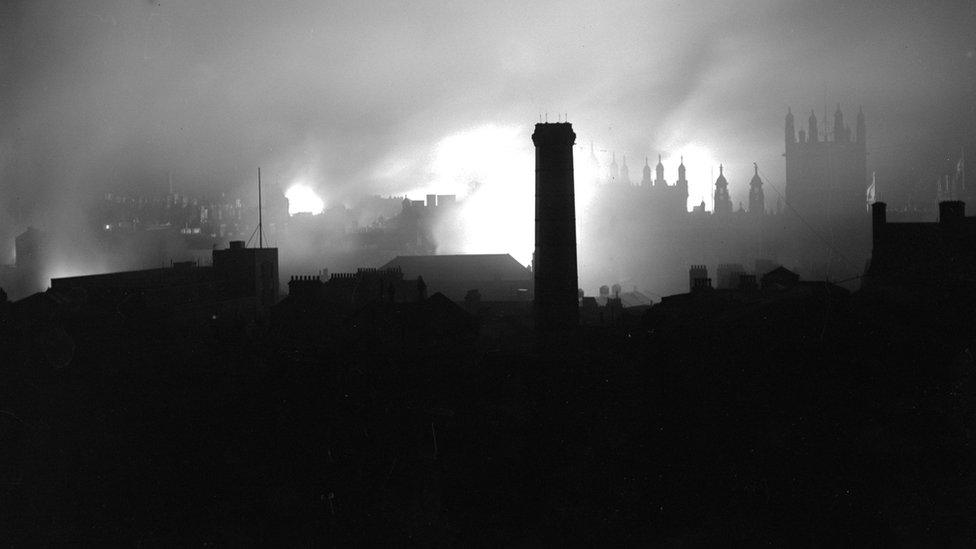
Large areas of the capital were devastated in 1940 and 1941
"And that it would be impossible to protect all the organs of state which would be vital to keep the country functioning.
"Llandudno was identified at a very early stage because it was on the limit of German bombers' flight range at that time, and because the town had proved itself logistically capable of hosting large numbers of troops during World War One.
"Those first 200 civil servants [who relocated in the spring] were just the advance party to prepare for what was a massive undertaking."
In fact, by the end of 1940 Llandudno was home to over 4,000 Inland Revenue staff and their families - and the operation had spread to include not only the Imperial Hotel, but 400 other buildings in the area.
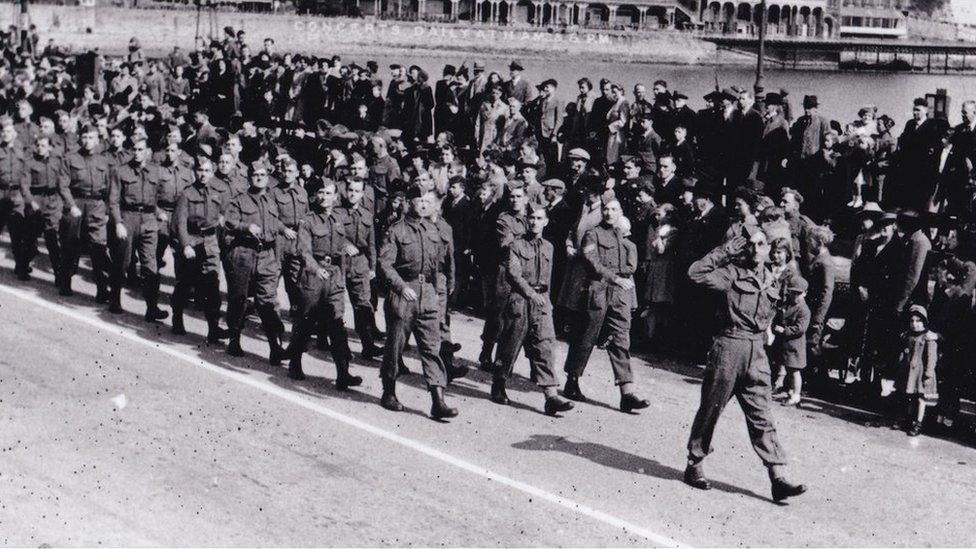
A Home Guard parade in Llandudno. The officer giving the salute is Captain Frank Billham who worked in the Inland Revenue at the Imperial Hotel
In the early years of the war, relations between locals and the newcomers seem to have been very cordial.
Under the Inland Revenue's entertainment officer - future Prime Minister James Callaghan - they formed a band which performed alongside the town's own band, staged theatrical performances, and organised a Christmas party in Llandudno Town Hall for 1,000 local children.
However, Mr Hughes says that by the end of the war the guests were beginning to outstay their welcome.
"I think if the Inland Revenue had been able to return to London after VE Day in 1945 then they'd have left on good terms with the town," he said.
"But many of their buildings had bomb damage, so it was 1947 before the last of them could go back.
"In those two years tourism had begun to recover and the landladies wanted their rooms back.
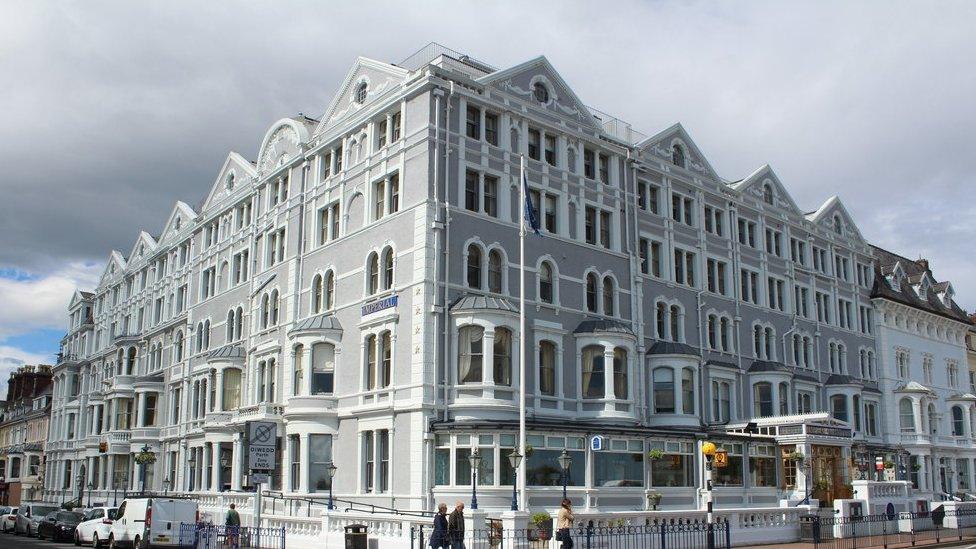
The Imperial Hotel in Llandudno was where many tax officers lived during World War Two
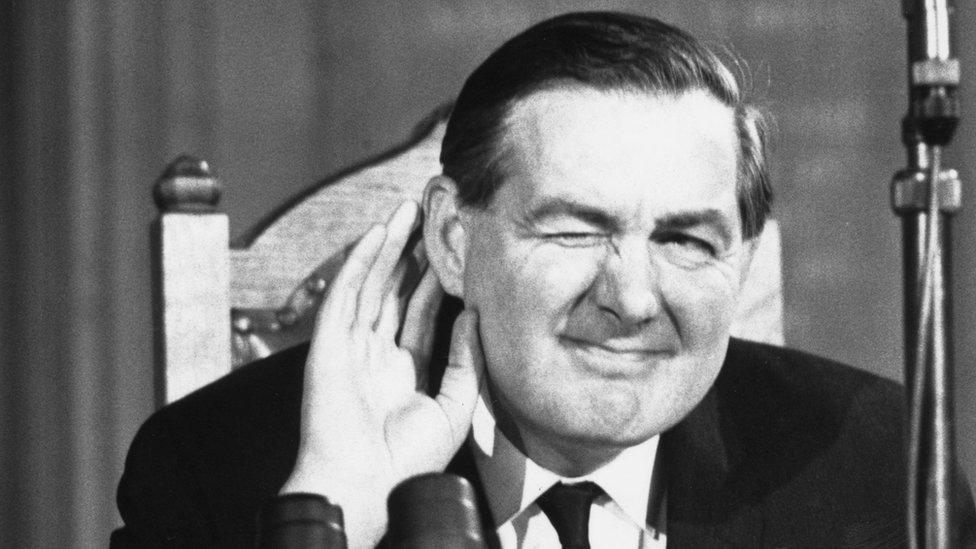
Future PM James Callaghan was the Inland Revenue's chief entertainment officer
"They began to call the tax officials 'guinea pigs' as their rent was set by government at one guinea (£1.05), far lower than the hoteliers could have charged holidaymakers."
Mr Hughes added that by the end of the arrangement the feeling seems to have been mutual - with Inland Revenue staff protesting at the train station, with placards demanding to be taken home.
A new webpage was created by the Llandudno and Colwyn Bay History Society and the Llandudno Home Front Museum as part of a project called HistoryPoints.
The project began in January 2012 as an experiment in allowing residents and visitors to read the history of local places on smartphones or tablets.
Since then it has created webpages and corresponding QR codes for over 1,600 locations around Wales.
- Published20 October 2014
